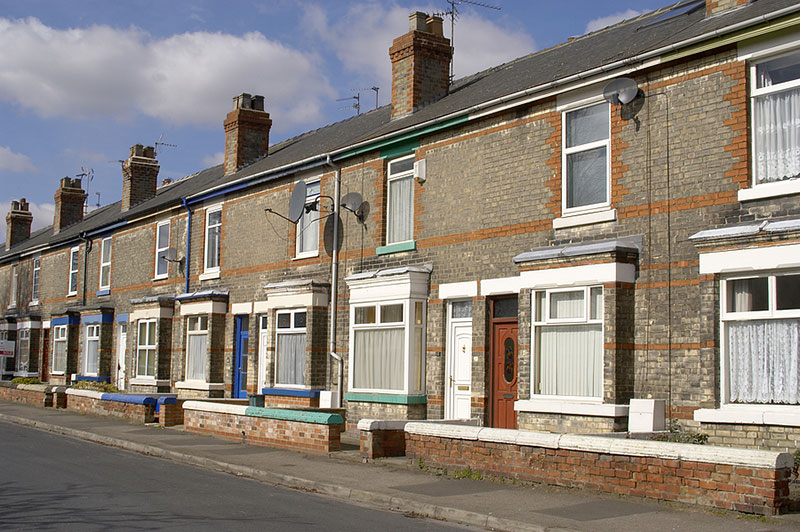It might be difficult for a homeowner to comprehend all elements of their home, so it’s easy to overlook that your property is connected to those of your neighbors’. However, if you live in a semi-detached or terraced property, there are a few things you should think about before doing any construction work yourself, one of these is The Party Wall Act.
But what exactly is a party wall, and how does it affect your house improvements if you’re not sure what it means?
Party Wall, What Is It?
A party wall is a wall that runs along the property’s edge between two separate homeowners. In general, if your property shares a wall with another, it forms your party wall. A garden fence or wall may extend the function of a party wall to the outside of your property. The party wall is often on the boundary line of your property and is also sometimes called the boundary wall. Quite often boundary disputes are related to the party wall, this is where a building surveyor should be called to help sort out any disputes which may arise.
If you want to finish your renovations while also ensuring that your neighbors are pleased, there are a few things you’ll have to consider before you can legally complete your work.
Much of it requires you to follow the Party Wall Act 1996, which necessitates the preparation of a Party Wall Notice and a Party Wall Agreement.

The Party Wall Act 1996
This legislation applies to property owners in England and Wales whose properties are connected to another property. Terrace and semi-detached houses, as well as flats or apartments, are examples of such structures. This government measure was designed to safeguard the structural soundness of shared dwellings and their occupants.
The Party Wall Act can prevent or resolve quarrels between neighbors if one of them has a problem with the issue. It’s crucial to remember that this legislation does not apply to house owners in Scotland and Northern Ireland, but if you live in either of those places, you should contact your local authority for further information.
Party Wall Agreement: Do I Need One?
If you want to perform building work on a party wall or within proximity to it, you’ll need a Party Wall Agreement. When carrying out construction activities that will impact a party wall, you must inform your neighbors.
This can be achieved by preparing a Party Wall Agreement and giving them a Party Wall Notice. A builder or party wall surveyor will be able to assist you on how to do this, but they won’t be able to deliver the Party Wall Notice on your behalf.
Which sort of property renovations mean you need a Party Wall Agreement?
- On walls between terraced or semi-detached properties or flats requiring building work
- Maintenance or renovations on structures shared by more than one property, including ceilings or floors, especially if you live in a flat
- Garden fences and walls which are requiring work
- Underpinning within 3-6m of the party wall
- Conversions to lofts & cellars
- Conversions made to a garage which shares a party wall
- Inserting a damp proof course
- Building works up to a party wall
- Building extensions which may affect the party wall
A Party Wall Notice
The relevant neighbor(s) will be notified by a Party Wall Notice. It provides them with sufficient notice that such work will be performed and must be served at least a year but no more than two months before any work is done. To serve a Party Wall Notice, you will not need to obtain planning permissions, but delays can result if you do not give them the correct notice in time.
It would also be a good idea to meet with your neighbor(s) in person before delivering the required notice to them as a way of assuring them that the work will be completed as quickly and efficiently as possible. This will prevent any misunderstandings or arguments over the work done, and it will also help you to write an agreement and a notice in a reasonable period of time.
You should also give your neighbor(s) a copy of the Party Wall Act 1996 when serving them with your Party Wall Notice for them to understand why they’ve been given such papers. To notify responsibly, according to the Party Wall Act 1996, you must include the following information:
What happens if a Party Wall Notice isn't served?
While failing to get a Party Wall Agreement drawn up isn’t technically illegal, you will violate a “statutory duty” and be liable for any associated losses to your neighbor(s)’ property that was not caused by you. If your neighbor(s) believes their property has been damaged as a result of your work, you may be required to pay for the repairs.
If you are being sued to resolve a financial dispute regarding repairs to your neighbor’s property, any legal team will not appreciate it if you do not serve your neighbor a Party Wall Agreement or a Party Wall Notice. As a result, you may be forced to pay for the damage done, even if it was not your responsibility.
In some situations, your neighbor(s) may take legal action against you and an injunction may be obtained to prevent you from doing further work until a Party Wall Agreement is established. This not only delays your project but also has the potential to raise the overall cost of your renovation job by hundreds of pounds. As a result, you must establish a Party Wall Agreement or a Party Wall Notice at the start of any building work.
This article is published by Ultimate Home Improvement blog uk




